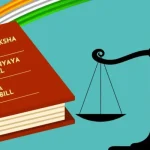In the case of Darshana Anand Damle v. Deputy Commissioner of Income Tax and Ors. [Writ Petition No. 1763 Of 2022), in order to develop the land, the Petitioner and the other co-owners entered into a development agreement. The Petitioner had submitted a copy of the development agreement to the Assessing Officer (“AO”) as part of the assessment proceedings under Section 143(3) of the Income Tax Act, 1961 (“Act) The AO questioned the Petitioner as to why the development agreement shouldn’t be viewed as a property transfer that would generate capital gains and be taxed accordingly. With special reference to Sections 2(47) (v) and 53A of the Transfer of Property Act, 1882, the Petitioner clarified that by engaging in the development agreement, the Petitioner had not transferred the land. The explanation provided by the Petitioner was accepted, and as a result, no additions for capital gains were made to the assessment order according to Section 143(3) of the Act. However, other sources of income were added to the Petitioner’s overall Income.
Subsequently, the Petitioner filed a complaint before the Ombudsman and attempted reconciliation, but the dispute remained unresolved. Feeling aggrieved by Respondent No. 1’s actions, the Petitioner invoked the arbitration clause and approached the Court seeking the appointment of an Arbitrator.
The Court observed that the Tripartite Agreement is the central agreement, and it’s closely connected to the Loan Agreement. Both agreements are interdependent, and the payment of pre-EMIS/EMIs and the liabilities of the Petitioner and Respondent No.2 are tied to the Tripartite Agreement.
The Respondent notified the Petitioner under Section 148 of the Act that it had grounds to suspect that the Petitioner’s income liable to tax for the Assessment Year 2013-14 had avoided assessment as defined by Section 147 of the Act.
The Petitioner had provided a copy of an agreement pertaining to joint development, and the Court observed that during the assessment processes, the AO had raised a question for which the Petitioner gave a thorough justification for why there was no “transfer of land.” After then, the assessment order was made, and it even made mention of the Joint Development Agreement between the developer and the Petitioner.
Further, the High Court cited the Supreme Court’s ruling In Seshasayee Steels (P) Ltd. v. Assistant Commissioner of Income Tax VI (2), Chennai, in which it was determined that the Petitioner had only granted a licence to a developer who entered the land for the purpose of development and that this did not amount to “allowing the possession of the land” as contemplated by Section 53A of the Transfer of Property Act, 1882. Accordingly, Section 2(47)(v) of the Act would not apply.
Therefore, the Court held that there was no failure to disclose any material fact. The notice Issued under Section 148 of the Act has to be quashed and set aside on that ground alone.










